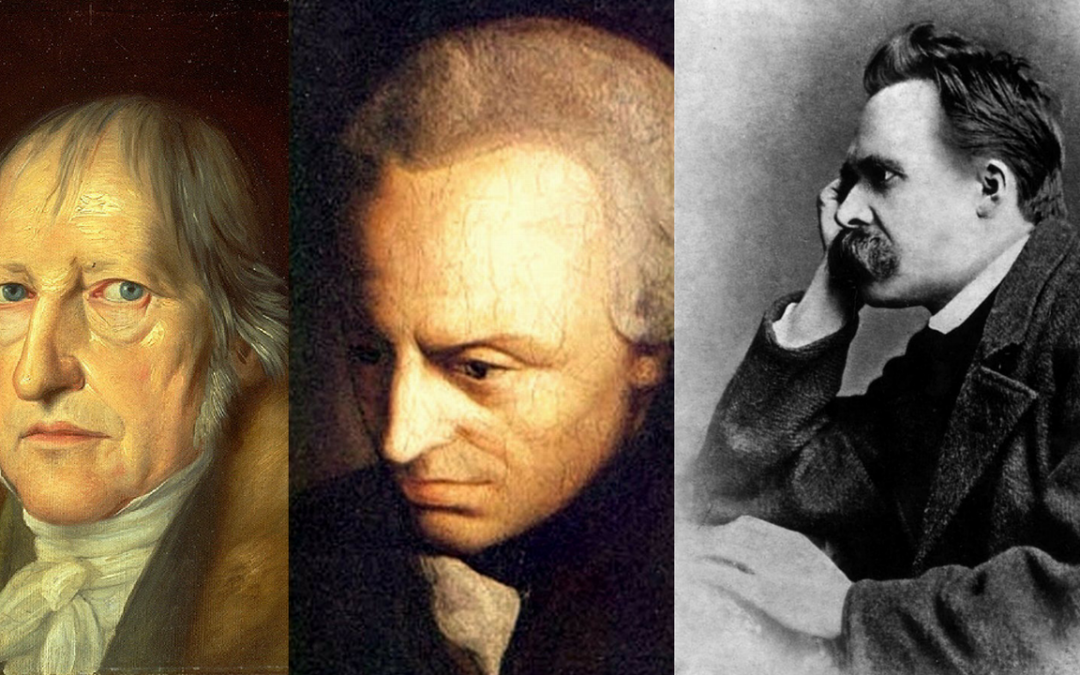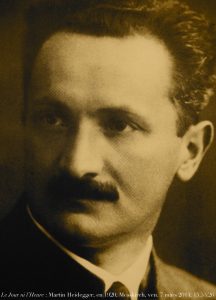The 19th century was truly an amazing time for philosophy. Some of the most important philosophers in history were born, or became prominent during this time. “God is dead” is perhaps the most famous quote from this period. The ideas thought of during this period had far reaching consequence which some claim are partly responsible for the deaths of millions of people. The Nazis were inspired by some of the philosophers from this period. This is a list of the most important philosophers who lived during the 19th century.
Martin Heidegger
Heidegger is widely considered to be one of the most important philosophers in recent history. Being and Time is his most book, and one of the most important philosophical works of the 20th century. In the book Heidegger writes about the concept of being. His work heavily influenced existentialism, hermeneutics, and deconstruction. His ideas have influenced leading postmodernists such as Derrida, Foucalt, and Lyotard. There is also a lot of controversy surrounding Heidegger because of his connections to the Nazi party. He joined the Nazi party, and remained a member for a long time. He described it as “the biggest stupidity of his life”.
“Being and time determine each other reciprocally, but in such a manner that neither can the former – Being – be addressed as something temporal nor can the latter – time – be addressed as a being.”
Soren Kierkegaard
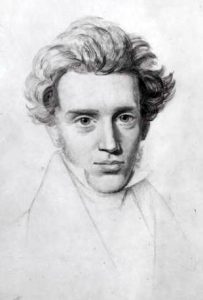
Soren Kierkegaard was an existentialist philosopher, and may even be the first existentialist philosopher. Kierkegaard came up with many notable ideas, including knight of faith, present age, the Absurd, angst, authenticity, existential despair, and existential philosophy. The knight of faith is a person who places complete faith in himself and in God. This allows him to act independently from the world. The Absurd is a reference to the conflict between man’s constant search for meaning in life, and inherent value, and the human inability to find any. Kierkegaard was certainly one of the most important philosophers of the 19th century.
“Life can only be understood backwards; but it must be lived forwards.”

Arthur Schopenhauer
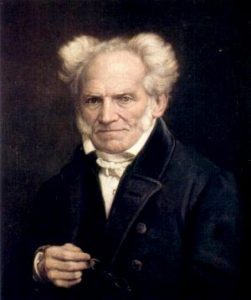
Schopenhauer was another great German philosopher. Schopenhauer saw the phenomenal world as the product of a blind and insatiable metaphysical will. Schopenhaur claimed the world was not a rational place, and was one of the first philosophers to claim this. Some of his most famous ideas were fourfold root of reason, hedgehog’s dilemma, will, and philosophical pessimism. The hedgehog’s dilemma goes like this: a group of hedgehogs want to huddle up close together to stay warm during the winter. However they cannot get too close, because then their spikes will hurt each other. They all want a close relationship, but it’s impossible for them to achieve this because of a reality that can’t be changed. Schopenhauer believed the analogy described human relationships as well.
“A man can be himself only so long as he is alone, and if he does not love solitude, he will not love freedom, for it is only when he is alone that he is really free.”
Georg Wilhelm Friedrich Hegel
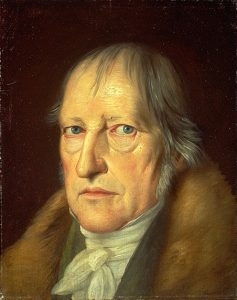
Hegel was a German philosopher whose most famous idea is absolute idealism. Idealism in philosophy is the idea that reality is fundamentally mental. In absolute idealism the dualism of subject and nature are overcome. Hegelian dialect is another one of his most notable ideas. The idea that a thesis needs an antithesis, which creates tension. This tension is then solved by a synthesis.
“We learn from history that we do not learn from history.”
Immanuel Kant
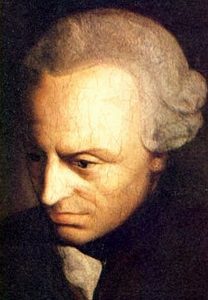
Kant was another German philosopher. He argued that the structure of human experience is created by the mind. Kant also claimed that human morality was created through reason, that ascetics arises from a faculty of disinterested judgement, and that space and time are forms our sensibility. He also believed that how the world really is, is independent of how we see it. Kant believed that through democracy, and cooperation between nations, everlasting peace not only could be achieved but was inevitable.
“In law a man is guilty when he violates the rights of others. In ethics he is guilty if he only thinks of doing so.”
Karl Marx
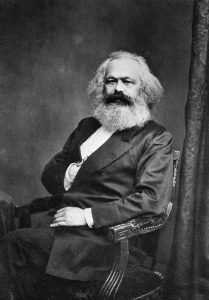
Karl Marx is one of the most important philosophers of the 19th century. He’s the founder of communism and socialism, and one of the only people in history to have start a movement with so many followers, and such immense consequences. Communism is the idea that the people should own the means of production, and that money, social classes, and the state shouldn’t exist. Socialism is the idea that the means of production, distribution, and exchange should be owned by the people.
“The production of too many useful things results in too many useless people.”
John Stuart Mill
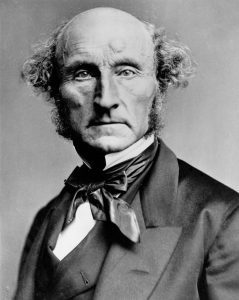
John Stuart Mill is one of the most important philosophers in the history of liberalism, and was considered one of the most important philosophers of the 19th century. Some of his most famous ideas include the hierarchy of pleasures in Utilitarianism, liberalism, harm principle, early liberal feminism, and Mill’s Methods. Mill believed in Utilitarianism, which is an ethical theory that purports that the best action is one that maximises utility. The theory’s founder Jeremy Bentham defined Utility as the sum of all pleasure that comes from an action, minus the pain of any individual involved in that action.
“Bad men need nothing more to compass their ends, than that good men should look on and do nothing.”
Charles Sanders Peirce
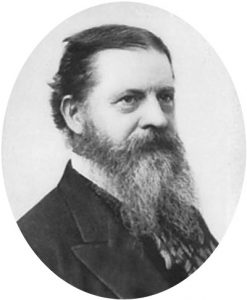
Charles Sanders Peirce is largely considered the founder of the philosophy of pragmatism. Pragmatism describes thought as a tool for prediction, problem solving, and action. It disagrees with the idea that the function of the mind is to mirror reality. Pragmatism argues that everything should be considered in terms of their practicality. Peirce was not only a philosopher but also a logician, scientist, and mathematician.
“Consider the practical effects of the objects of your conception. Then, your conception of those effects is the whole of your conception of the object.”
Edmund Husserl
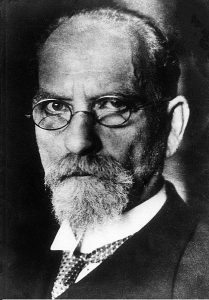
Edmund Husserl is the philosopher who founded phenomenology. Phenomenology can be confusing as it doesn’t have a clear definition. Rather it is a style of thought, over a doctrine, or a philosophical school. Husserl saw phenomenology as concerned with the systematic reflection on and the study of consciousness and the phenomena that appears in acts of consciousness.
“I had to philosophize. Otherwise, I could not live in this world.”
Nietzsche
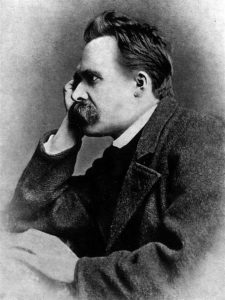
Nietzsche was a German philosopher who caused controversy during his time, and still causes controversy today, because of his philosophy, especially his criticism of Christianity. Everyone knows the quote, “God is dead.” But not everyone knows the full quote, “God is dead. God remains dead. And we have killed him. How shall we comfort ourselves, the murderers of all murderers? What was holiest and mightiest of all that the world has yet owned has bled to death under our knives: who will wipe this blood off us? What water is there for us to clean ourselves? What festivals of atonement, what sacred games shall we have to invent? Is not the greatness of this deed too great for us? Must we ourselves not become gods simply to appear worthy of it?”
He didn’t mean god had literally died, he was an atheist who didn’t believe in god. He meant that our belief in god had been shattered, and so we had no basis for Christian morality, and would have to create a new value system.

